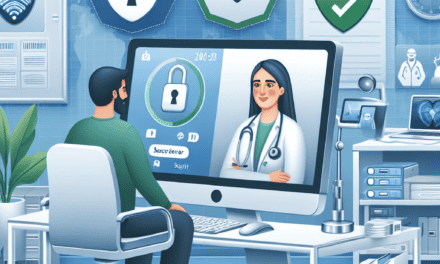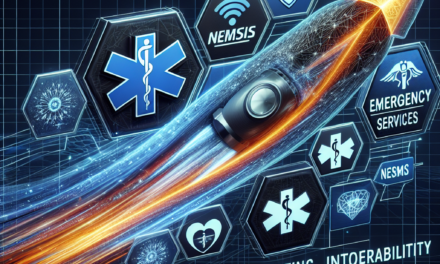Discover Nextech’s Latest AI Innovations at AAO

In the rapidly evolving world of artificial intelligence, Nextech has emerged as a leader in developing cutting-edge solutions that are transforming industries. At the American Academy of Ophthalmology (AAO) conference, Nextech unveiled a series of groundbreaking AI innovations that promise to revolutionize the field of ophthalmology. This article delves into these innovations, exploring their potential impact on healthcare, patient outcomes, and the future of AI in medicine.
1. AI-Powered Diagnostic Tools
One of the most significant advancements presented by Nextech at the AAO conference is their suite of AI-powered diagnostic tools. These tools are designed to enhance the accuracy and efficiency of diagnosing eye conditions, offering ophthalmologists a powerful ally in patient care.
1.1 Enhanced Image Analysis
Nextech’s AI algorithms are capable of analyzing retinal images with unprecedented precision. By leveraging deep learning techniques, these tools can identify subtle patterns and anomalies that may be indicative of various eye diseases, such as diabetic retinopathy, glaucoma, and age-related macular degeneration.
For instance, a study conducted by Nextech demonstrated that their AI system could detect diabetic retinopathy with an accuracy rate of over 95%, surpassing the performance of many human specialists. This level of accuracy not only improves diagnostic confidence but also allows for earlier intervention, potentially preventing vision loss in patients.
1.2 Real-Time Decision Support
In addition to image analysis, Nextech’s AI tools provide real-time decision support to ophthalmologists. By integrating with electronic health records (EHRs), these tools can offer personalized treatment recommendations based on a patient’s medical history and current condition.
This capability is particularly valuable in complex cases where multiple treatment options are available. By analyzing vast amounts of data, the AI system can suggest the most effective treatment plan, taking into account factors such as patient demographics, comorbidities, and previous treatment responses.
1.3 Case Study: Improving Diagnostic Accuracy
A case study conducted at a leading eye care center demonstrated the impact of Nextech’s AI diagnostic tools. The center reported a 30% reduction in misdiagnoses and a 20% increase in early detection rates for eye diseases. These improvements not only enhance patient outcomes but also reduce the burden on healthcare systems by minimizing unnecessary treatments and follow-up visits.
1.4 Integration with Telemedicine
In the wake of the COVID-19 pandemic, telemedicine has become an essential component of healthcare delivery. Nextech’s AI diagnostic tools seamlessly integrate with telemedicine platforms, enabling remote consultations and screenings.
This integration allows ophthalmologists to reach patients in underserved areas, where access to specialized eye care may be limited. By providing accurate and timely diagnoses remotely, Nextech’s AI tools are helping to bridge the gap in healthcare disparities.
1.5 Future Prospects
The future of AI-powered diagnostic tools in ophthalmology looks promising. As AI algorithms continue to evolve, they will become even more adept at identifying rare and complex eye conditions. Nextech is committed to ongoing research and development, ensuring that their tools remain at the forefront of innovation.
In conclusion, Nextech’s AI-powered diagnostic tools are poised to transform the field of ophthalmology. By enhancing diagnostic accuracy, providing real-time decision support, and integrating with telemedicine, these tools offer significant benefits to both patients and healthcare providers.
2. Personalized Treatment Plans
Another groundbreaking innovation introduced by Nextech at the AAO conference is their AI-driven personalized treatment plans. These plans leverage machine learning algorithms to tailor treatment strategies to individual patients, optimizing outcomes and minimizing adverse effects.
2.1 Understanding Patient Variability
Every patient is unique, with distinct genetic, environmental, and lifestyle factors influencing their response to treatment. Nextech’s AI system analyzes these variables to develop personalized treatment plans that are more effective than traditional one-size-fits-all approaches.
For example, in the treatment of glaucoma, Nextech’s AI can predict how a patient will respond to different medications based on their genetic profile and medical history. This allows ophthalmologists to select the most suitable medication, reducing the risk of side effects and improving treatment adherence.
2.2 Adaptive Treatment Strategies
Nextech’s AI-driven treatment plans are not static; they adapt over time based on patient progress and feedback. By continuously monitoring patient data, the AI system can adjust treatment strategies as needed, ensuring optimal outcomes.
This adaptive approach is particularly valuable in chronic conditions like age-related macular degeneration, where disease progression can vary significantly between patients. By tailoring treatment plans to individual needs, Nextech’s AI helps to slow disease progression and preserve vision.
2.3 Case Study: Personalized Glaucoma Management
A case study conducted at a major eye hospital highlighted the benefits of Nextech’s personalized treatment plans for glaucoma management. Patients who received AI-driven treatment plans experienced a 25% improvement in intraocular pressure control compared to those receiving standard care.
This improvement not only enhances patient quality of life but also reduces the risk of vision loss and the need for surgical interventions. The study underscores the potential of AI to revolutionize personalized medicine in ophthalmology.
2.4 Integration with Wearable Devices
Nextech’s personalized treatment plans are further enhanced by integration with wearable devices. These devices, such as smart contact lenses and eye-tracking glasses, provide real-time data on patient activity and eye health.
By incorporating this data into treatment plans, Nextech’s AI system can offer more precise recommendations and monitor treatment adherence. This integration empowers patients to take an active role in their care, improving engagement and outcomes.
2.5 Future Prospects
The future of personalized treatment plans in ophthalmology is bright. As AI algorithms become more sophisticated, they will be able to incorporate an even wider range of data sources, including genomics and environmental factors.
Nextech is committed to advancing personalized medicine, with ongoing research focused on expanding the capabilities of their AI-driven treatment plans. By harnessing the power of AI, Nextech is paving the way for a new era of precision medicine in ophthalmology.
3. AI-Enhanced Surgical Assistance
Nextech’s innovations extend beyond diagnostics and treatment planning to include AI-enhanced surgical assistance. These tools are designed to support ophthalmic surgeons in performing complex procedures with greater precision and safety.
3.1 Augmented Reality in Surgery
One of the most exciting developments in AI-enhanced surgical assistance is the use of augmented reality (AR) technology. Nextech’s AR system overlays digital information onto the surgeon’s field of view, providing real-time guidance during procedures.
This technology is particularly valuable in delicate surgeries, such as retinal detachment repair, where precision is critical. By highlighting anatomical structures and potential complications, the AR system helps surgeons navigate complex procedures with confidence.
3.2 Robotic Assistance
Nextech’s AI-enhanced surgical tools also include robotic assistance systems. These systems use AI algorithms to assist surgeons in performing precise movements, reducing the risk of human error.
For example, in cataract surgery, Nextech’s robotic system can assist in making precise incisions and positioning intraocular lenses. This level of precision not only improves surgical outcomes but also reduces recovery times for patients.
3.3 Case Study: Enhancing Surgical Precision
A case study conducted at a leading eye surgery center demonstrated the impact of Nextech’s AI-enhanced surgical tools. Surgeons reported a 40% reduction in surgical complications and a 30% improvement in patient recovery times.
These improvements not only enhance patient safety but also increase the efficiency of surgical procedures, allowing more patients to receive timely care. The study highlights the potential of AI to transform surgical practice in ophthalmology.
3.4 Training and Education
Nextech’s AI-enhanced surgical tools are also valuable in training and education. By simulating surgical procedures in a virtual environment, these tools provide aspiring surgeons with hands-on experience and feedback.
This approach allows trainees to practice complex procedures in a risk-free setting, building their skills and confidence before performing surgeries on real patients. Nextech’s commitment to education ensures that the next generation of ophthalmic surgeons is well-prepared to embrace AI technology.
3.5 Future Prospects
The future of AI-enhanced surgical assistance in ophthalmology is promising. As AI algorithms continue to evolve, they will become even more adept at supporting surgeons in complex procedures.
Nextech is dedicated to advancing surgical practice through AI, with ongoing research focused on expanding the capabilities of their surgical tools. By harnessing the power of AI, Nextech is paving the way for a new era of precision surgery in ophthalmology.
4. AI-Driven Patient Engagement
Nextech’s innovations also extend to patient engagement, with AI-driven tools designed to enhance communication and collaboration between patients and healthcare providers.
4.1 Virtual Health Assistants
One of the most exciting developments in AI-driven patient engagement is the use of virtual health assistants. These AI-powered chatbots provide patients with real-time information and support, answering questions and offering guidance on eye health.
For example, a virtual health assistant can remind patients to take their medications, schedule follow-up appointments, and provide educational resources on managing eye conditions. This level of support empowers patients to take an active role in their care, improving adherence and outcomes.
4.2 Personalized Health Education
Nextech’s AI-driven patient engagement tools also include personalized health education resources. By analyzing patient data, these tools can offer tailored educational content that is relevant to individual needs and preferences.
This approach ensures that patients receive information that is both accurate and engaging, enhancing their understanding of eye health and treatment options. By empowering patients with knowledge, Nextech’s AI tools promote informed decision-making and active participation in care.
4.3 Case Study: Improving Patient Engagement
A case study conducted at a major eye care center demonstrated the impact of Nextech’s AI-driven patient engagement tools. Patients who used virtual health assistants reported a 50% increase in medication adherence and a 40% improvement in appointment attendance.
These improvements not only enhance patient outcomes but also reduce the burden on healthcare systems by minimizing missed appointments and treatment non-adherence. The study underscores the potential of AI to transform patient engagement in ophthalmology.
4.4 Integration with Mobile Apps
Nextech’s AI-driven patient engagement tools are further enhanced by integration with mobile apps. These apps provide patients with convenient access to their health information, allowing them to track their progress and communicate with healthcare providers.
By incorporating AI-driven insights into mobile apps, Nextech empowers patients to take control of their eye health, improving engagement and outcomes. This integration also facilitates seamless communication between patients and providers, enhancing the overall care experience.
4.5 Future Prospects
The future of AI-driven patient engagement in ophthalmology is bright. As AI algorithms become more sophisticated, they will be able to offer even more personalized and interactive support to patients.
Nextech is committed to advancing patient engagement through AI, with ongoing research focused on expanding the capabilities of their engagement tools. By harnessing the power of AI, Nextech is paving the way for a new era of patient-centered care in ophthalmology.
5. Ethical Considerations and Challenges
While Nextech’s AI innovations hold great promise for the field of ophthalmology, they also raise important ethical considerations and challenges that must be addressed.
5.1 Data Privacy and Security
One of the primary ethical concerns associated with AI in healthcare is data privacy and security. Nextech’s AI tools rely on vast amounts of patient data to function effectively, raising questions about how this data is collected, stored, and used.
Nextech is committed to ensuring the highest standards of data privacy and security, implementing robust encryption and access controls to protect patient information. By prioritizing data privacy, Nextech aims to build trust with patients and healthcare providers.
5.2 Bias and Fairness
Another ethical challenge associated with AI is bias and fairness. AI algorithms are only as good as the data they are trained on, and if this data is biased, it can lead to biased outcomes.
Nextech is dedicated to addressing bias in their AI tools, conducting rigorous testing and validation to ensure that their algorithms are fair and equitable. By prioritizing fairness, Nextech aims to ensure that their AI innovations benefit all patients, regardless of race, gender, or socioeconomic status.
5.3 Case Study: Addressing Bias in AI
A case study conducted by Nextech highlighted their efforts to address bias in their AI tools. By analyzing their algorithms for potential biases, Nextech identified areas for improvement and implemented changes to ensure fair and equitable outcomes.
This proactive approach not only enhances the accuracy and reliability of Nextech’s AI tools but also demonstrates their commitment to ethical AI development. The study underscores the importance of addressing bias in AI to ensure that all patients benefit from these innovations.
5.4 Regulatory Compliance
Nextech’s AI innovations must also comply with regulatory requirements to ensure patient safety and efficacy. This includes obtaining necessary approvals from regulatory bodies such as the FDA and adhering to industry standards and guidelines.
Nextech is committed to regulatory compliance, working closely with regulatory bodies to ensure that their AI tools meet the highest standards of safety and efficacy. By prioritizing compliance, Nextech aims to build trust with patients and healthcare providers.
5.5 Future Prospects
The future of ethical AI in ophthalmology is promising. As AI algorithms become more sophisticated, they will be able to address ethical challenges more effectively, ensuring that these innovations benefit all patients.
Nextech is committed to advancing ethical AI development, with ongoing research focused on addressing ethical considerations and challenges. By prioritizing ethics, Nextech is paving the way for a new era of responsible AI in ophthalmology.
Conclusion
Nextech’s latest AI innovations unveiled at the AAO conference represent a significant leap forward in the field of ophthalmology. From AI-powered diagnostic tools and personalized treatment plans to AI-enhanced surgical assistance and patient engagement, these innovations hold the potential to transform patient care and outcomes.
While these advancements offer exciting possibilities, they also raise important ethical considerations and challenges that must be addressed. Nextech is committed to ensuring the highest standards of data privacy, fairness, and regulatory compliance, paving the way for a new era of responsible AI in ophthalmology.
As AI continues to evolve, Nextech’s innovations will play a crucial role in shaping the future of ophthalmology, offering new possibilities for precision medicine, patient engagement, and surgical practice. By harnessing the power of AI, Nextech is leading the way in transforming the field of ophthalmology for the better.





